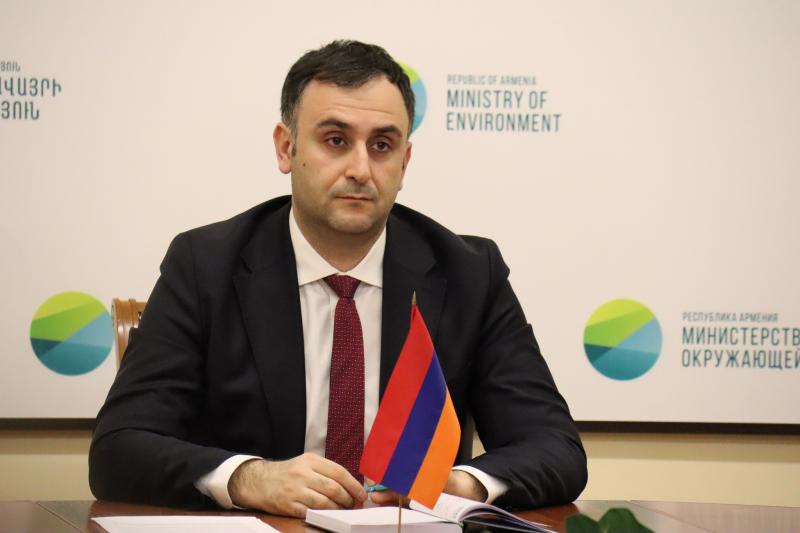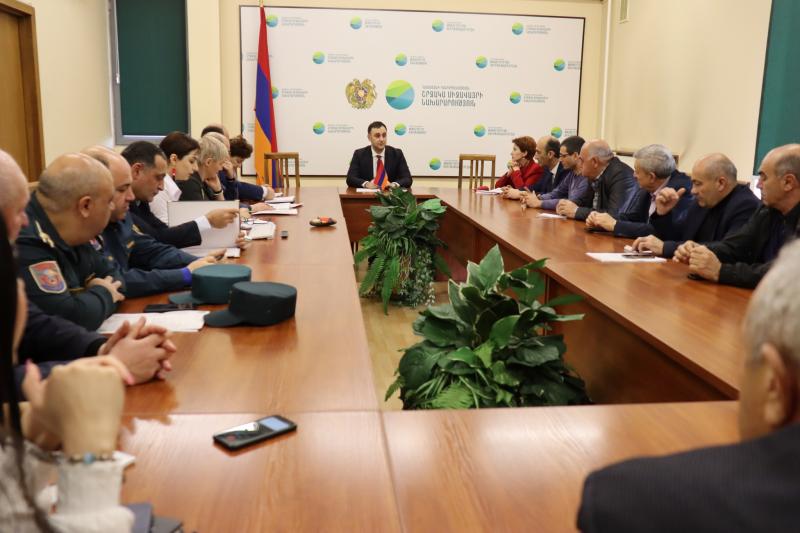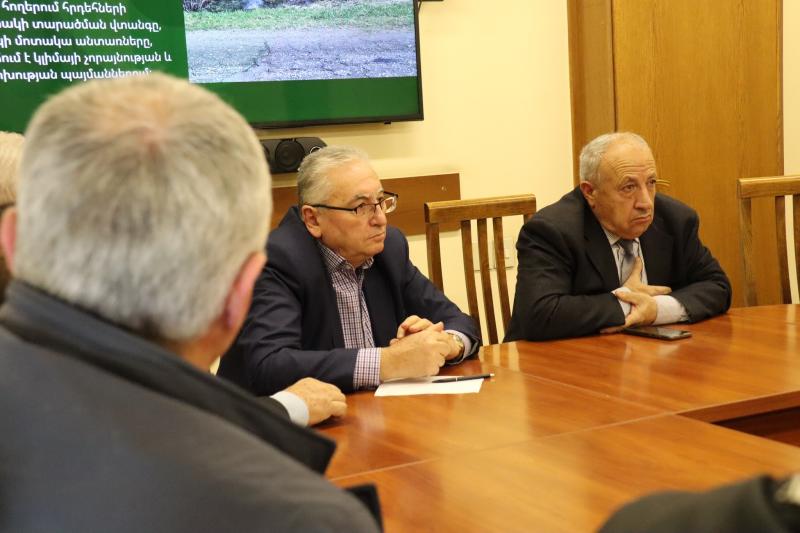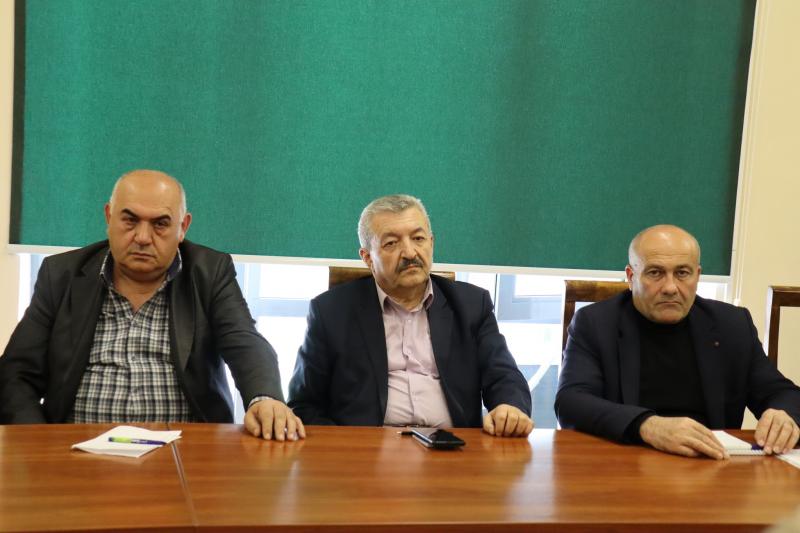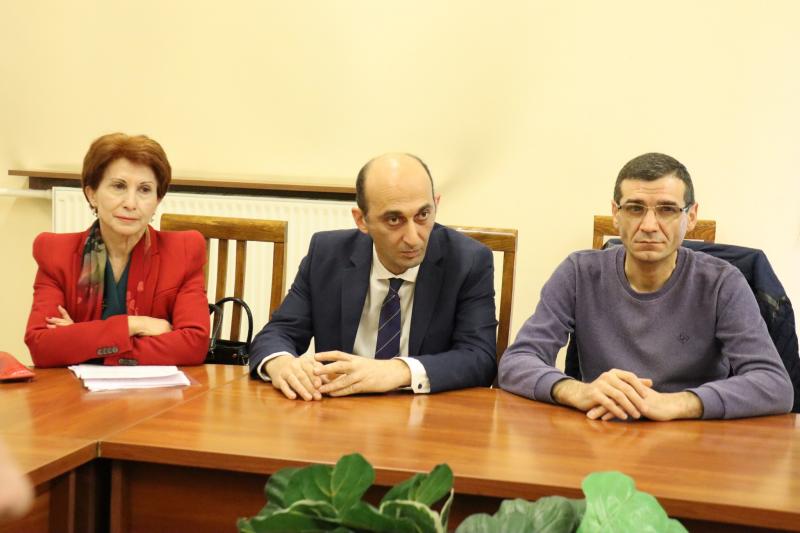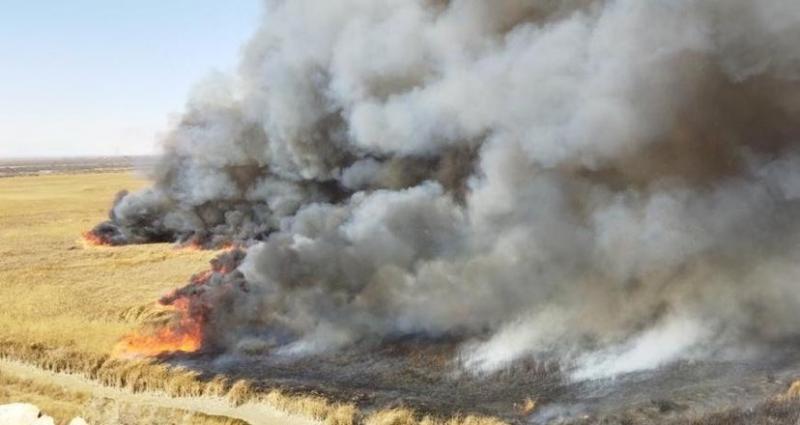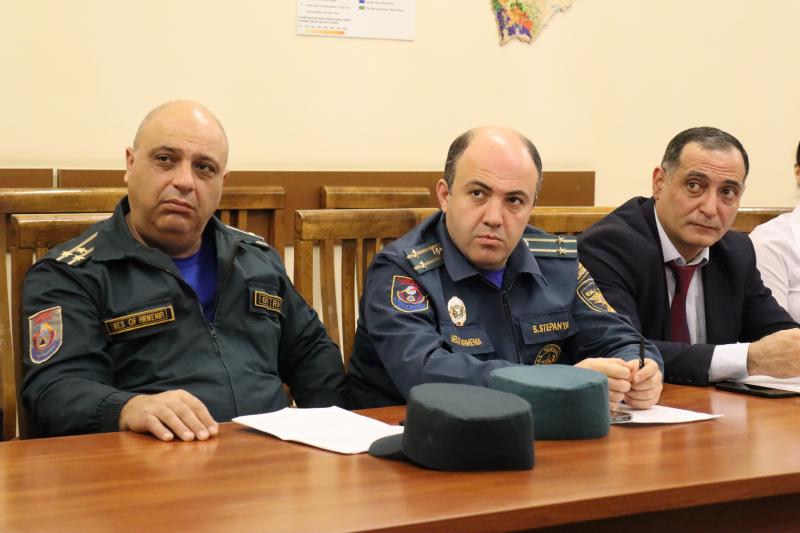Today in the Ministry of Environment, under the leadership of Deputy Minister Aram Meymaryan , an extended discussion was held, dedicated to the environmental consequences of burning agricultural land. The discussion was attended by representatives from the professional departments of the Ministries of Environment, Emergency Situations, Economy, Departments of Agriculture and Environmental Protection of regional governorates, the EPMIB, the Urban Planning, Technical and Fire Safety Inspection Body, the Scientific Center of Zoology and Hydroecology of the National Academy of Sciences of the National Academy of Sciences, and the Institute of Botany named after Takhtajyan.
Welcoming the colleagues and thanking them for accepting the invitation to the discussion, the deputy minister referred to the most acute problem of the negative consequences of burning stubble and plant residues in the fields before or after the agricultural works.
"In the context of climate challenges, taking into account the predicted dry season for the current year, the Ministry of Environment planned this discussion in order to find complex and comprehensive solutions to the mentioned problems, as well as to take immediate measures to prevent fires," the deputy minister noted and urged colleagues to to raise the existing problems through discussion and to form a single vision around the ways of their solution.
Voskehat Grigoryan, head of the Specially Protected Areas and Biodiversity Policy Department of the Ministry of Environment, presented the damage to nature and human health, and specifically referred to the damage caused to the land as a result of burning.
"Fire deteriorates the organic composition of the soil, reduces moisture, the surface layer disintegrates and turns into particles, as a result of which the soil is easily exposed to wind and water erosion. Burning of mowed fields contributes to the destruction of many useful substances in the soil, not only the organic and mineral mass in the upper layer of the soil is burned, but also many other nutrients suitable for plants," said Voskehat Grigoryan.
During the discussion, reference was also made to the legislation regulating the sector. According to the legislation of the Republic of Armenia, administrative and criminal punishments are provided for the burning of brushwood, areas with plant remains and dry vegetation.
As the main option for the solution, the issue of proper awareness of the public was discussed, a decision was made to intensify the work in that direction and to carry out a joint large-scale awareness campaign.


